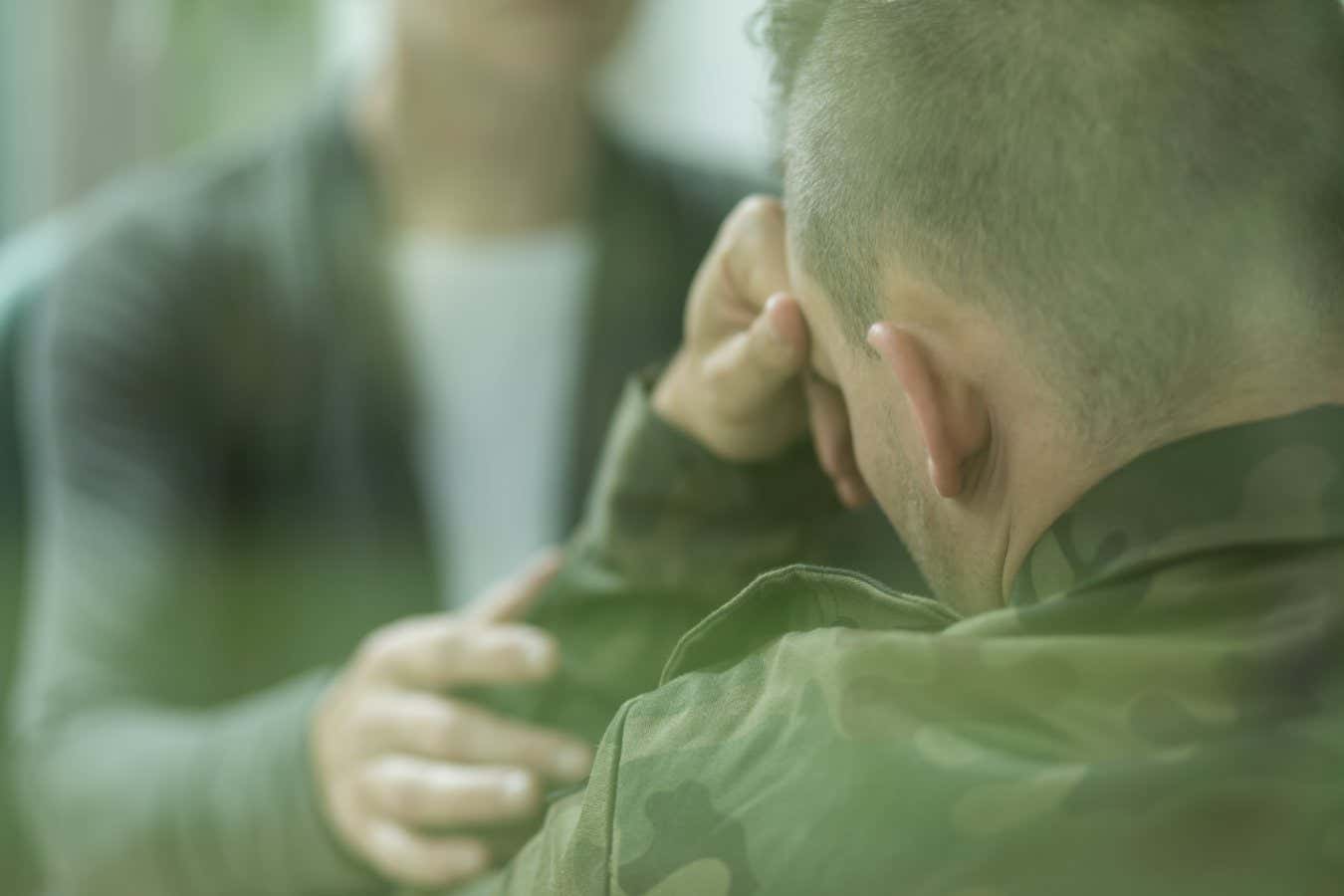Military veterans with traumatic brain injury saw drastic reductions in depression and symptoms of post-traumatic stress disorder after using the psychedelic drug ibogaine
By Grace Wade
5 January 2024
Military veterans saw improvements in combat-related brain injuries after taking psychedelic drugs
Shutterstock / Ground Picture
The psychedelic substance ibogaine may treat chronic disability from traumatic brain injury (TBI). A single dose of the drug led to lasting improvements in physical and social functioning, cognition and mood in military veterans with combat-related TBI.
Read more
Headset delivers electric current to ease depression at home
“This is the first time anybody has really been able to show that there are neuro-rehabilitation effects from any psychedelic, and a pretty profound signal of improvement,” says Nolan Williams at Stanford University in California.
Advertisement
He and his colleagues recruited 30 male US military veterans with TBI to attend a treatment facility in Mexico for five days. They were each given a dose of ibogaine, a psychedelic substance from the iboga plant native to Africa. Everyone met with a therapist before and after taking ibogaine to prepare for and discuss their psychedelic experience. Participants could also attend activities like yoga, massage and meditation at the facility.
The participants took 12 milligrams of ibogaine per kilogram of body weight and received an intravenous infusion of magnesium to help prevent cardiac problems associated with the drug. The researchers measured disability in the participants before and after treatment using a scale of 0 to 100, with higher scores indicating greater disability. At the start of the study, participants scored an average of 30, implying mild-to-moderate disability. Four to five days after the treatment, this score fell below 20 and, a month later, to around 5, indicating no disability.
At least 83 per cent of participants no longer met criteria for depression, anxiety or post-traumatic stress disorder (PTSD) a month after treatment. They also saw significant improvements in processing speed, problem solving and working memory.
